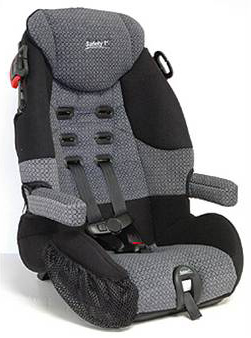Community Safety Programs
Smoke Alarms: Working smoke alarms in your home can reduce the chance of dying in a fire by 50 percent. Those are odds you can live with! Smoke alarms alert you that a fire has started and give you ample time to escape. Since most fire deaths occur at night while people are sleeping, it is important to install working smoke alarms in the home to give you and your family enough time to get out of the house safely. Each residence should have a working smoke alarm on each level of the home and in or near each bedroom. For more information visit U.S. Fire Administration or National Fire Protection Association.
Escape Planning: Each home should have an escape plan which includes the following elements: know two ways out of each room; if a closed door is hot-do not open it; if smoke is present drop down low to the floor and crawl to safety; establish a safe meeting place outside for the whole family and call 9-1-1 from your safe meeting place or a neighbor’s house. Practice your plan often so everyone recognizes the sound of the smoke alarm and knows what to do. For examples, see below:
Maintenance: Test your smoke alarms at least once a month by pushing the test button. If you have standard 9 volt batteries (not 10-year batteries) a good rule is to replace your batteries twice a year when you change your clock in the spring and the fall. If your alarm “chirps” replace the battery immediately. If you have hard-wired alarms, battery back-up is required in case of a power failure. Vacuum or dust your smoke alarms according to manufacturer’s directions to keep them working properly. Replace your entire smoke alarm after 10 years.
Remember if you are renting your landlord is responsible for providing smoke alarms. For more information please contact 703-792-7736.
File of Life Program: The program is designed to enable fire and rescue personnel the ability to obtain a quick and accurate medical history of a patient when a patient or family member is unable to provide one. The “File of Life” information card provides an area to list contact information for the patient’s doctor, family members, insurance information and any other special circumstances that rescue personnel should know in caring for the patient.
|
Child Safety Seats Did you know that as many as 85% of child safety seats are defective or incorrectly installed? Is your family riding safe? Through education, training, enforcement, outreach and legislation the Safe Kids Coalition seeks to ensure that all children from birth to age 16 are properly restrained in the correct restraint system every time they travel in a motor vehicle. Child restraint devices must be properly used and meet standards adopted by the United States Department of Transportation. The Safe Kids Coalition sponsors community child safety seat inspections and encourages everyone to have their child safety seats inspected throughout the year. At this time, the Prince William County Fire and Rescue System is no longer offering this community service. Please contact or visit the following resources for additional information on child safety seats and/or upcoming safety seat inspections: |
|
Saving Prince William’s Littles
Website - https://savingprincewilliamslittles.com/
Facebook - https://www.facebook.com/savingprincewilliamslittles
https://www.facebook.com/savingnovaslittles/
Loudoun County – Saving Loudoun’s Littles
https://www.facebook.com/SavingLoudounsLittles/
Fairfax County Sheriff’s Office
https://www.fairfaxcounty.gov/sheriff/community-free-child-safety-seat-inspections#:~:text=To%20ensure%20that%20children%20are,inspect%20safety%20seats%20by%20appointment
Virginia Department of Health – Virginia Safety Seat Inspection Locator
https://www.vdh.virginia.gov/child-passenger-safety/safety-seat-checks/
NHTSA – National Safety Seat Inspection Locator
https://www.nhtsa.gov/equipment/car-seats-and-booster-seats#install-inspection
For information on assistance programs for low-income residents who cannot afford a safety seat, contact the Virginia Department of Health Center for Injury and Violence Prevention at 1-800-732-8333.
